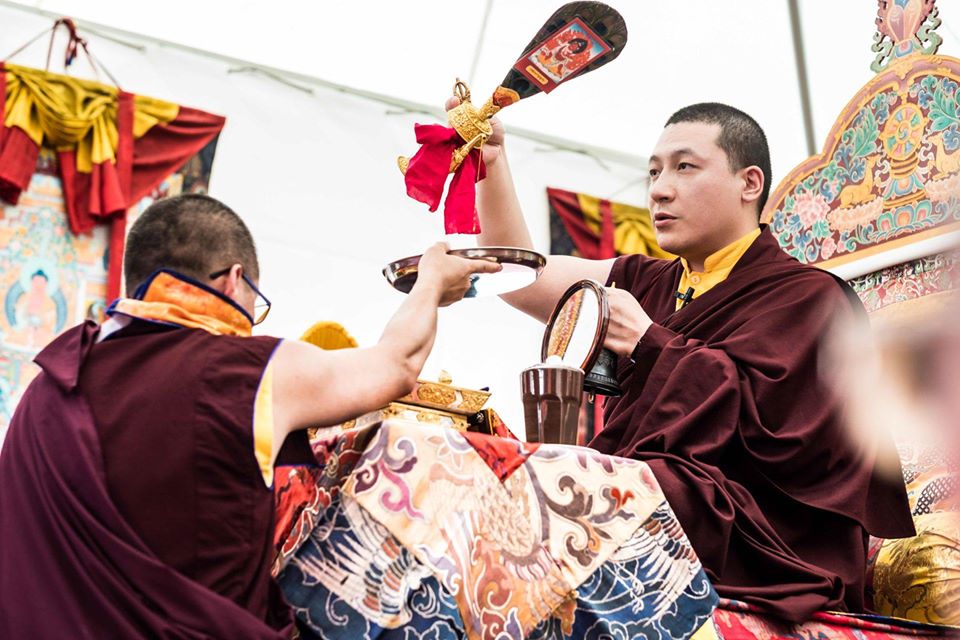
如果我們能夠將自己視為一個容器,我們將能夠容納有經驗豐富的人其體驗、知識、對慈悲和智慧的了解。 我們能夠容納這些東西,就等於在有需要時、能饒益他人的時候,能夠將之傳給別人。 為了確保容器的良好狀態,我們要實踐或運用我們知道的各種方法,例如堅守美德、訓練覺知,基本上是菩薩必須經過的所有練習。 要實踐這些方法,首先我們要確保容器是完整無缺,可以容納東西,沒有損壞。所以,不會是一個有漏的容器,漏掉或漏走任何應容納的東西。 這樣,任何需要傳遞的內容都可以給傳遞,因為容器本身沒有絲毫破損或殘缺。
噶瑪巴
If we are able to somehow think of ourselves as a vessel, then it means that we will be able to contain the experience, the knowledge, the understanding of compassion and wisdom of someone who is experienced. We will be able to contain that, and that automatically implies that whatever is contained can then, whenever necessary, whenever is beneficial, be passed on to others. In order to make sure that the container is in proper shape, we practice or apply various methods that we know, such as upholding virtues, practicing awareness, basically all of the practices that a bodhisattva has to apply. By practicing these, we make sure that the container is first of all in proper shape, it can contain, it is not damaged, and therefore it doesn’t seep or leak whatever it is supposed to contain. So that whatever needs to be passed on can be passed on because it is not damaged or lost.
#Karmapa
(Photo/Tokpa Korlo)
(中文翻譯由本中心翻譯小組負責。若有錯漏,請見諒。節錄或載列文章內容以原文為準。)
